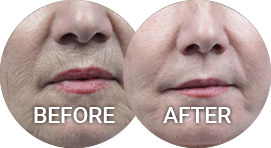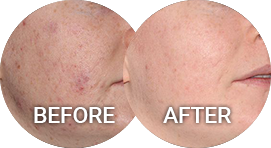Immunotherapy for Allergies
Conveniently located to serve the areas of Phoenix, AZ

Immunotherapy for allergies is a treatment plan that involves consistently and gradually introducing an allergen to the body to help deactivate a patient’s immune response. In the past, only immunotherapy injections could relieve respiratory problems, stomach upsets, and other reactions to common allergens. Today, oral immunotherapy options can offer patients a more comfortable and convenient alternative. Not only can these injections and oral treatments resolve everyday irritations related to seasonal allergies, but clinicians can even help prevent the serious onset of anaphylactic shock from bee stings, pet dander, and more.
If you want to gain more control over your health and live without the burden of uncomfortable symptoms, get in touch with Pineapple Health, a primary care clinic and allergen treatment center in Phoenix. With the help of our team of healthcare professionals and Dr. Kevin Chan, you can find personalized care catered to your exact needs.
To get started today, call (480) 961-2366 or use our contact form, and a staff member from our office will help you find an appointment date that works best for you.
Contents
What Causes Allergies?
An allergy is an overactive immune system response to a certain food, environmental factor, or animal. Though the immune system is designed to protect the body from foreign bodies, it can sometimes malfunction and react to harmless substances. When the body comes into contact with an allergen- a substance that provokes an allergic reaction- it may release more immunoglobulin E (IgE) antibodies. (1) Those with one or more allergies have various types of IgE antibodies that increase in quantity upon exposure to the allergen. They mostly produce symptoms in the nose, throat, lungs, or skin. Less severe signs of allergies include:
- Itchy or Runny Nose
- Stuffy Nose
- Hives
- Watery Eyes
- Cough
- Sneezing
- Headache
Food allergens can affect the stomach and the GI tract and result in:
- Stomach Pain
- Bloating
- Diarrhea
- Nausea
While many might not think of serious reactions in association with everyday allergies, these do occur and can result in serious consequences. This type of reaction is anaphylaxis, which requires immediate medical attention:
- Throat Swelling
- Mouth and Face Swelling
- Difficulty Breathing
- Difficulty Swallowing
- Wheezing
- Fatigue
- Confusion
- Dizziness
- Fainting
- Blue, Gray, or Pale Skin
Regardless of whether an allergen creates serious or less dire consequences, immunotherapy can help. Nobody deserves to feel sick or held back by cold or flu-like symptoms. Those who are at risk for an anaphylactic reaction can live without needing to carry auto-injectable epinephrine (like EpiPen®) or worry about a trip to the ER.
How Does Immunotherapy Work?
In essence, oral or injectable immunotherapy works by increasing your tolerance for an allergen, reducing the immune response, and preventing it from interfering with your everyday life. Research has shown that immunotherapy is effective in treating a variety of allergies to:
- Pollen
- Grasses, Weeds, and Trees
- Mold
- Dust mites
- Insect Stings
- Insect Venom
- Cat and Dog Allergens
- Food Allergens
If you have been diagnosed with “hay fever” or seasonal allergies- common names for allergic rhinitis- we can provide you with an appropriate injectable or oral treatment plan and even help prevent the onset of new allergies. Food allergies, specifically, require oral immunotherapy to help the body adjust accordingly.
The Benefits of Immunotherapy
Immunotherapy offers a range of benefits that may not be obvious at first glance:
- It decreases allergy symptoms. The most significant benefit is that treatment provides relief. Though immunotherapy takes time to fully take effect, your body can begin to respond within just a few weeks.
- Injections are not necessary. If you are sensitive and put off by injections, Dr. Chan offers an innovative oral spray method as well.
- It eliminates the need for allergy medications. Antihistamines for allergies can cause bothersome side effects like dry mouth, dizziness, and sedation. (2) Corticosteroids for allergies can increase blood sugar levels and negatively affect eye, skin, and gastrointestinal health. (3)
- It is FDA-approved. Dr. Chan only prescribes immunotherapy treatments that have undergone rigorous evaluation by the FDA.
- You can prevent anaphylaxis. If you have a serious allergy, immunotherapy may be an excellent long-term investment for your health.
- You can improve your quality of life. Managing an allergy can make outdoor activities a pain or impossible. Immunotherapy provides long-term results that give you more freedom to live how you want.
Treatment Plans

A course of immunotherapy can prevent future allergy flare-ups for many years. Under the supervision of Dr. Chan, he will carefully monitor your progress and customize your treatment according to your symptoms and sensitivities. If you have not been properly diagnosed with a specific allergy, he will conduct an allergy test that involves a scratch test and/or a blood test. This will also help him gauge if you have other allergies that you are unaware of to make your treatment plan more effective.
Allergy Shots
Allergy shots, also called immunotherapy injections, only require once-weekly visits to start. Dr. Chan will administer an injection with a minuscule amount of the chosen allergen to reintroduce it, but it will not be enough to trigger any uncomfortable symptoms. This first phase of treatment will only continue for a few months. In the second phase, Dr. Chan will increase the frequency of this dosage from once-a-week injections to three or more times per week, depending on the severity of the allergy.
After these initial phases, you will only need a maintenance injection every month or so to sustain your protection against the allergen. You will be able to fully prevent allergic reactions for several years after three to five years of maintenance. Dr. Chan will give you more personalized guidance about when you can stop immunotherapy. (4)
While allergy shots can treat environmental allergies, Dr. Chan can also deliver venom immunotherapy with venom allergens. This subtype of injection can offer protection against common stings and bites from honey bees, yellow jackets, wasps, and hornets.
Sublingual Immunotherapy
With sublingual immunotherapy, Dr. Chan can prescribe an allergen spray for you to self-administer under the tongue. While this method is only available for certain allergies, it can be a great cost-effective, convenient alternative to injections. For this particular treatment, you will have to keep the spray under your tongue for at least half a minute before swallowing to allow absorption into the bloodstream. Sublingual immunotherapy can be an excellent choice if you have a fear of needles or simply have a preference for a non-invasive method. Research also suggests that if you had a less optimal experience with injections, you are more likely to reap better results with sublingual immunotherapy. (4)
Food Allergy Immunotherapy
Food allergy immunotherapy is another type of oral immunotherapy. For this type of treatment, Dr. Chan will gradually increase your threshold of tolerance for a specific food. He may first conduct a test to find out if you are allergic to a specific protein. He will give you a tiny amount of the food allergen- not enough to stimulate an immune reaction- and increase the amount over several months. Undergoing this can give you the protection you need in case you accidentally consume the allergen.
Am I a Candidate for Immunotherapy?
If you are a good candidate for immunotherapy, you will find the treatment to be transformative for your overall quality of life and well-being. If you relate to any of the following, you should consider scheduling an appointment with an immunotherapy specialist like Dr. Chan:
- Your allergy medications do not seem to be working.
- Your allergy medications produce unwanted side effects that you do not want to manage anymore.
- You are at a higher risk of experiencing anaphylaxis or have experienced it before.
- Your allergy symptoms flare up whenever you reduce your medication dosage.
- You have asthma as a result of your allergies.
- You have dealt with infections as a result of your allergies.
- You cannot avoid your allergy triggers.
- You want to avoid taking daily medications that can place a strain on your liver and kidney functioning.
- You want to address the root cause of your allergy problems rather than mask symptoms.
Consultation
If you are interested in learning more about the specifics of immunotherapy, scheduling a consultation with Dr. Chan should be your first step. This will give you an opportunity to ask questions to a physician who has vast experience in multiple fields of study, including functional, integrative, metabolic, and anti-aging medicine. His well-rounded background will give you a comprehensive understanding of your health and whether immunotherapy is right for you. During your first appointment at his office, he will give you more information about allergy testing and his personalized treatment protocol for your specific allergy issues.
To inquire more today, call Pineapple Health in Phoenix at (480) 961-2366 or fill out his online form, and a team member will get back to your appointment request promptly. If you would like to know more about the other services at Pineapple Health, visit our blog.
Cost of Immunotherapy in Phoenix
Dr. Chan will give you a total cost estimate for your immunotherapy treatment at the end of your consultation. He will take into consideration the length of your treatment, the chosen method (oral or injection), and the severity of your allergy. Immunotherapy can be deemed medically necessary, and your insurance may provide coverage. Pineapple Health accepts a variety of different insurance plans.
References
- Sutton BJ, Davies AM, Bax HJ, Karagiannis SN. IgE Antibodies: From Structure to Function and Clinical Translation. Antibodies. 2019;8(1):19. doi:https://doi.org/10.3390/antib8010019
- Farzam K, O’Rourke MC. Antihistamines. PubMed. Published December 27, 2022. https://www.ncbi.nlm.nih.gov/books/NBK538188/
- Yasir M, Sonthalia S. Corticosteroid Adverse Effects. Nih.gov. Published July 3, 2023. https://www.ncbi.nlm.nih.gov/books/NBK531462/
- Moote W, Kim H, Ellis AK. Allergen-specific immunotherapy. Allergy, Asthma & Clinical Immunology. 2018;14(S2). doi:https://doi.org/10.1186/s13223-018-0282-5



